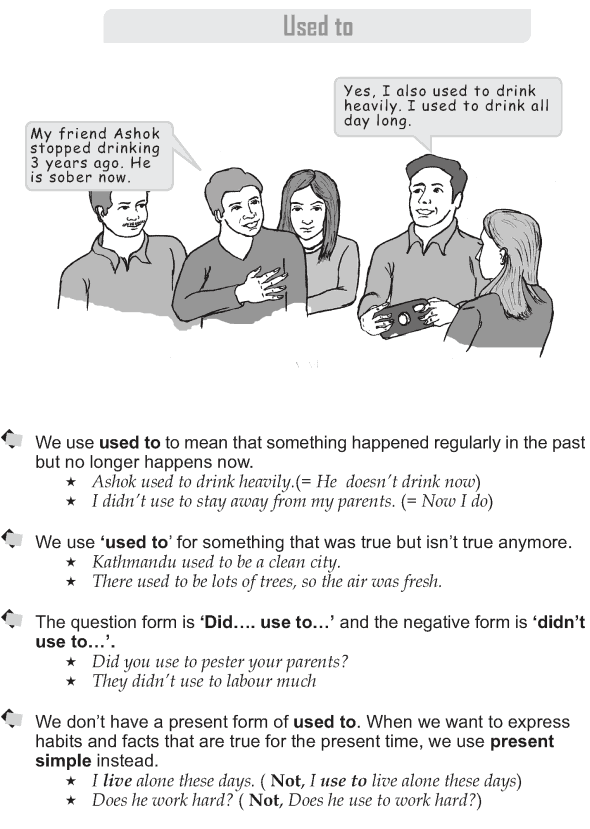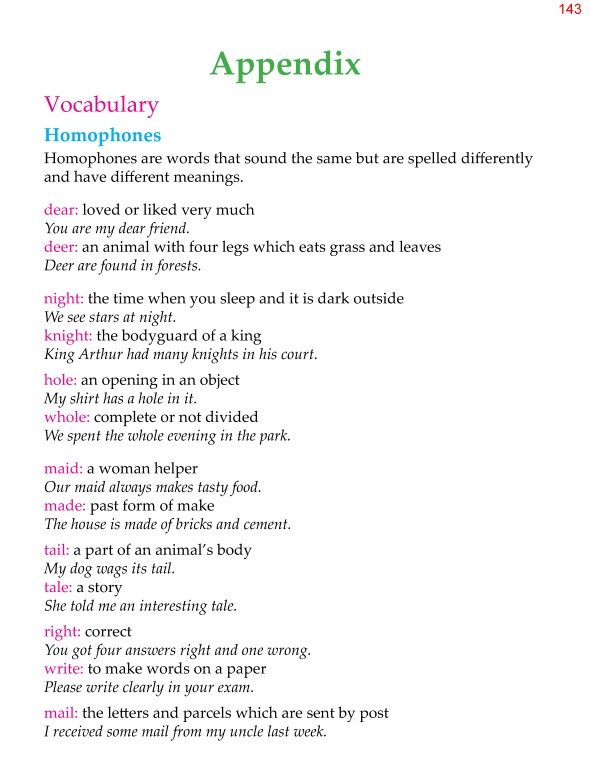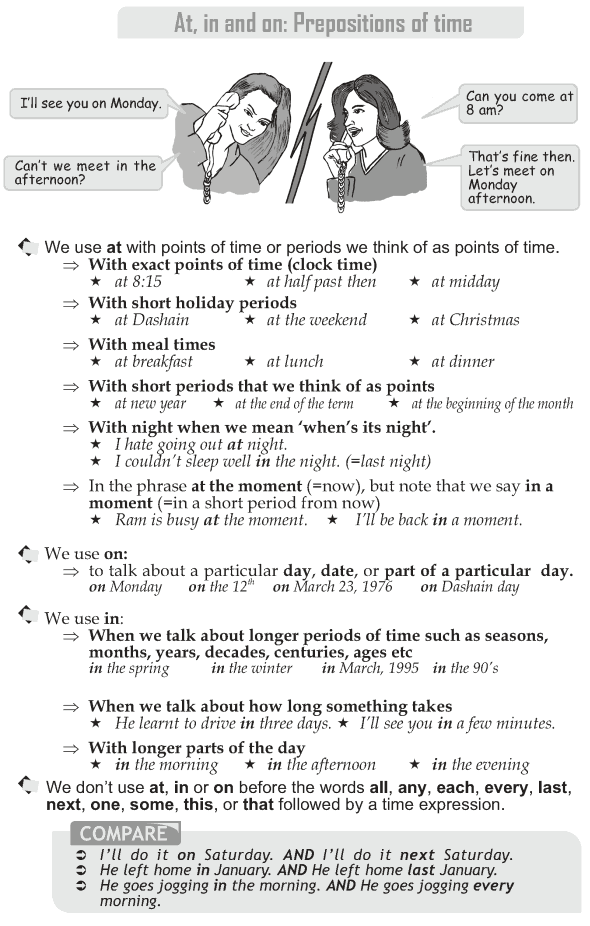
What does ‘be used to’ mean? When do we use ‘be used to’? Can we use an infinitive after ‘be/get used to’?

Homophones are words that sound the same but are spelled differently and have different meanings. night: the time when you sleep and it is dark outside – We see stars at night. knight: the bodyguard of a king – King Arthur had many knights in his court. A synonym is a word having a similar […]
Download the complete course now Genre/Topic: Prepositions
Genre/Topic: Prepositions
When do we use ‘at’ when we are talking about time? When do we ‘in’ when we are talking about time? What is the difference between ‘at night’ and ‘in the night’? What is the difference between ‘at the moment’ and ‘in a moment’? When do we use ‘on’ when we are talking about time?